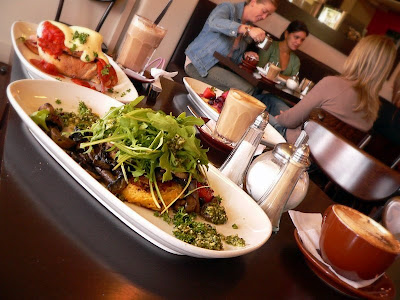The first in this series can be found at Accounting and finance: the rationale. This post focuses on how corporations interact with society through the systems of accounting and finance. It considers:
- Why does a company exist to profit shareholders?
- What happens when a company fails? Who suffers the most?
- Should companies be blamed for bad behaviour?
- Is capitalism the answer? Is there are better way, waiting to be imagined?
Why does a company exist to profit shareholders?
This is actually a simplistic question, and perhaps is the wrong question to address the heart of my concerns.
A company focuses on profits to shareholders because that’s the deal it made. Remember: ‘Give me capital now and in return, you have a claim on my future income.’ Because shareholders have a stake in the prospects of a company, they have the right to influence the company’s strategy, usually by voting at general meetings. In reality, though, small shareholders like me have such diluted decision power (and little interest in voting) that we free-ride off the decisions of big institutional investors, who are hopefully voting to maximise the prospects of the company.
Okay, so the real question that I want to ask is actually ‘Why doesn’t a company look after its employees, the community and the environment at the expense of profits to shareholders?’
The answer is a little surprising: it’s meant to.
Shareholders actually have a claim on the residual earnings of a company. Through laws, the government sets the priorities of claims on a company’s assets — shareholders are meant to have the last of it. The company’s earnings must first be diverted to tax, meeting environmental obligations, employee pensions and leave, public reporting requirements, and all those other expenses of doing business in a country. These are all claims on a company’s income and are paid out of money that would otherwise go to shareholders.
Shareholders therefore take on the residual risk. It is risky, owning shares. If, after all of society’s claims on a company’s assets are made, there is nothing left for the shareholder, then they have lost their investment.
What happens when a company fails? Who suffers the most?
Things do go wrong. Think Enron in the United States, and Ansett in Australia. Companies fail for different reasons but it seemed to me that employees suffered the most from collapses.
Banks appear to do relatively well after corporate collapses. This is because when they grant a loan, they are clever enough to use the company’s tangible assets as collateral. A company that fails loses all the value associated with potential future income but it still has its buildings and equipment. When these are sold, the bank’s claim is prioritised and paid first.
Shareholders basically lose their investment because their willingness to pay for the stock was based on the expectation of future income. They may be able to salvage some of their money, once the company’s assets are sold off and debts are paid.
Employees have no ownership claim on tangible assets. Their livelihoods depended on the company’s income. They may lose their severance packages (usually expressed as some weeks of salary), which is important for them to survive the transition into new jobs. The severance package, however, is a minor amount compared to the promised pension (or superannuation). If employee pensions have been held in another trust, then pensions are protected from the collapse. If, however, the pensions are tied to company stocks (as was the case in Enron), then employees suffer at least as much as the shareholders. It’s the ‘all eggs in one basket’ effect on risk.
I’ve seen the Australian people call for compassion for and protection of employees of bust companies. In those situations, the government decided to step in to fund bail-out measures.
Should companies be blamed for bad behaviour?
In my view, there are two reasons we observe bad corporate behaviour:
- The company is breaking the rules of the game.
- The rules of the game do not reflect society’s values and need to be changed.
If a company breaks the law, then clearly it needs to be condemned for behaving immorally. The government and courts must enforce the law.
If a company acts within the law, yet we find ourselves disapproving of its actions, then as a society, we should lobby for changes in the law. If the priority of claims on a company’s assets and income is skewed too far in favour of shareholders, then the government should tax the company more, impose stricter environmental regulations, increase company contributions to employee pensions, and so on.
It would be nice if companies did all these things voluntarily but I think it would be naive to rely on corporate social responsibility. There will always be a few who lead the way in CSR but most of the pack will behave as dictated by the rules. The most reliable and consistent way to pull up the laggards is to raise the standards and enforce them.
Of course, setting ambitious regulations for corporate behaviour does not preclude education and discussion about a company’s moral behaviour. Exxon can be condemned for lobbying against renewable energy targets and carbon tax, even if it operates within the law. Telstra can be condemned for reducing telephone services to rural areas.
I believe, though, that in general, governments have been too weak. Failures of the financial system to serve society’s purposes are failures of the government more than of individual corporations. The government sets the rules of the system, and the system shapes the patterns of behaviour. In fact, I believe that the management teams of many corporations would be relieved by stricter regulation because it raises the entire playing field. Management can then justify investment into social and environmental initiatives because their shareholders are no more or less disadvantaged than shareholders in other companies.
Is capitalism the answer? Is there are better way, waiting to be imagined?
One day, capital might not be the limiting factor of productivity. One day, natural and manufactured resources may be plentiful. In this future, then, labour might be king and we, as individual owners of our skills, knowledge and experiences, will be powerful and wealthy. Another option might be to form coalitions of individuals, like unions, who are able to command a price for our labour. Labourism may have its own set of problems.
I suspect that capitalism is a robust system and will last a long time yet. We can spend time and have fun imagining a fundamentally different kind of system. However, in the near future, my own efforts will focus on modifying the system we have now to make sure it works for the benefit of the community.


